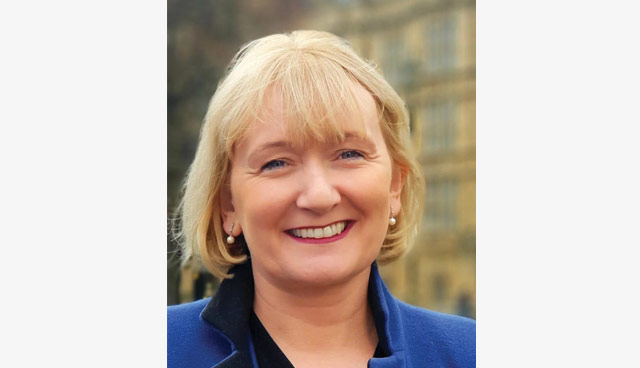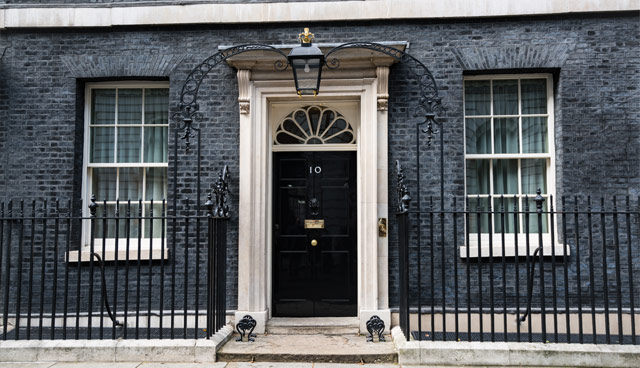Meet the Media

A Tullamore native and graduate of NUI Galway, Fiona Mitchell was appointed RTÉ’s London correspondent in 2014 having served as deputy foreign editor. She has reported on two UK general elections, the appointment of new Conservative and Labour Party leaders, Brexit and the Grenfell Tower tragedy, a story she was both physically and emotionally close to.
How did you get into journalism?
When I left NUIG (or UCG as it was then) having studied History and Politics I was interested in journalism and did work experience in my local radio station (Radio 3 in Tullamore). When a job opportunity came up there, I went for it. I spent two years there before I saw an ad for a new TV station called TV3. I applied, and while I had no TV experience they took a chance, as they did with many others. It was a great experience. We all learned about TV at the same time, often while on air. It was a terrific opportunity to try different aspects of working in TV news, as everyone was expected to muck in, even if something wasn’t strictly their role. It meant I did everything from presenting to reporting to editorial work, which has stood me in good stead. From there I headed to RTÉ where I have worked since 2000. I kept that belief in trying different areas of the newsroom, and so have worked in both editorial and on-air roles there.
How do you think the profession is evolving?
The biggest change in recent years (apart from online news) has been in terms of technology. You have to be able to edit for both radio and TV, as well as shoot video material yourself. In London I have to be across dealing with crews who shoot on a variety of formats and being able to set up for the technology to go live. All of that while you focus on the core of what you do, communicating the story to the audience in an accessible way. There are a huge amount of technologies available now which weren’t there 10 years ago. But they only work if you understand them and know how to work around any problems which arise, as inevitably happens.
What is unique about being a foreign correspondent and working in London?
The UK is certainly unique because it’s arguably the place which Irish people understand most outside of our own country. We watch British soap operas, follow British football teams, read British newspapers. Irish people have an innate understanding of what is going on here, which helps me in this job because you are not starting from scratch, and also people are interested in the story.
Who would you identify as your role models in the industry and why?
I found myself one day sitting at a table in the RTÉ canteen with Donal Kelly (RTE’s former political editor) and being dumbstruck that I was having a conversation with someone who I had watched and listened to all through my youth (the news was always on in our house). It is incredible to meet people like that. It’s not all about the people who are ‘front of camera’ though. I learned a huge amount working with people like Ed Mulhall (former head of news) and I’ve been very lucky to work with people like John O’Regan (best known perhaps for ‘Reeling In The Years’) but also the mastermind behind RTE’s coverage of major events.

“Brexit will define my time in the London role of course, but for me the story which stands out on a personal basis is the Grenfell Tower fire.”
What would you describe as your most notable story or project?
Brexit will define my time in the London role of course, but for me the story which stands out on a personal basis is the Grenfell Tower fire. I live three streets away from the tower, so I see it almost every day. In many of these events, you cover the story and then move on to the next thing. Not so with this. It has affected people far beyond Grenfell itself and will continue to do so for a long time to come.
What are your main interests outside of work?
It’s hard to structure life outside work with any certainty. If I book theatre tickets I almost invariably have to cancel and do the 9 o’clock news instead. However, I do try to make the most of the huge amount of cultural opportunities which London has to offer. I recently went to see the Don McCullin photographic exhibition at the Tate, for example. There is always something on in London…you just have to be spontaneous about it.





